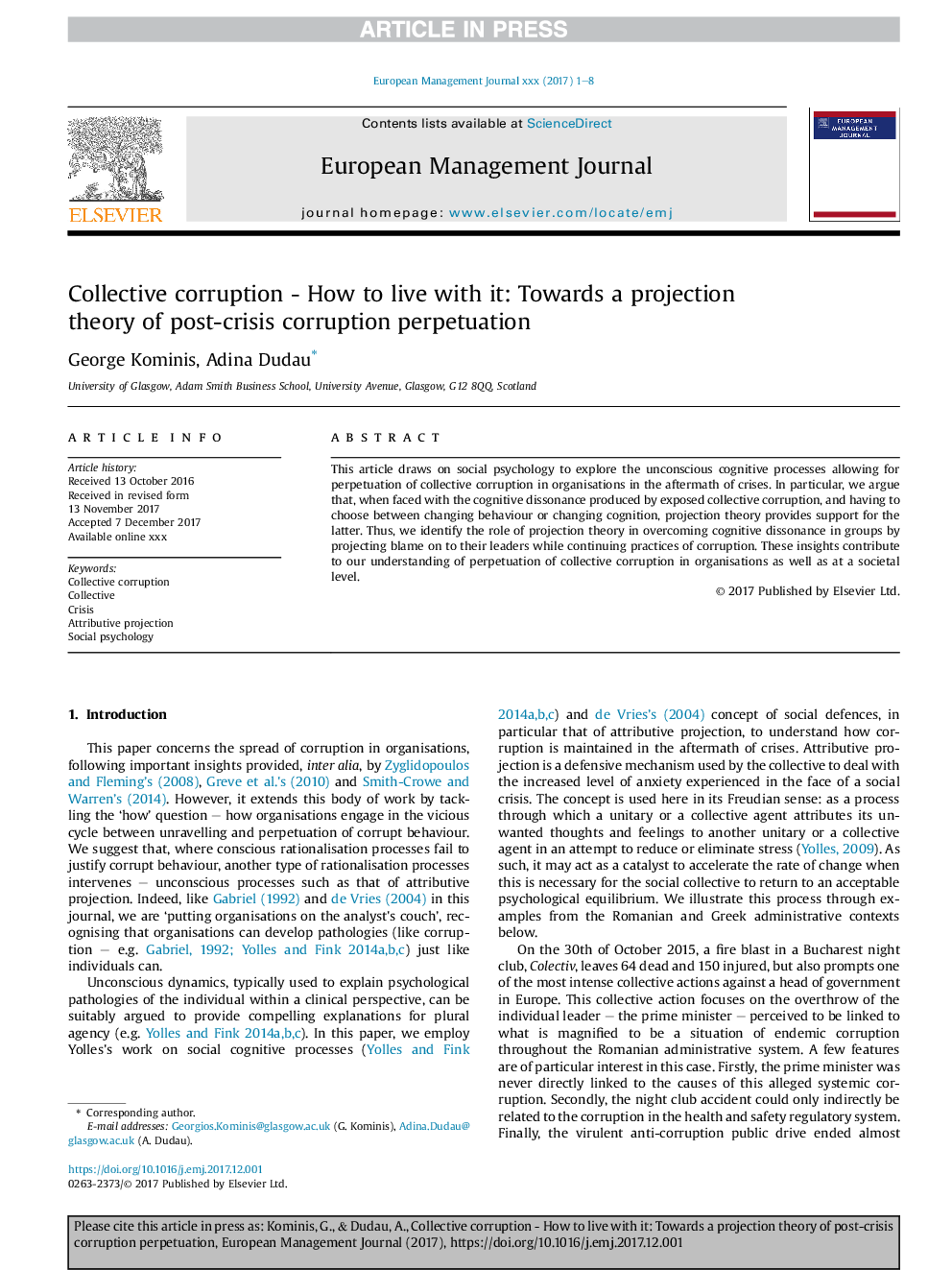| Article ID | Journal | Published Year | Pages | File Type |
|---|---|---|---|---|
| 7423572 | European Management Journal | 2018 | 8 Pages |
Abstract
This article draws on social psychology to explore the unconscious cognitive processes allowing for perpetuation of collective corruption in organisations in the aftermath of crises. In particular, we argue that, when faced with the cognitive dissonance produced by exposed collective corruption, and having to choose between changing behaviour or changing cognition, projection theory provides support for the latter. Thus, we identify the role of projection theory in overcoming cognitive dissonance in groups by projecting blame on to their leaders while continuing practices of corruption. These insights contribute to our understanding of perpetuation of collective corruption in organisations as well as at a societal level.
Keywords
Related Topics
Social Sciences and Humanities
Business, Management and Accounting
Business and International Management
Authors
George Kominis, Adina Dudau,
